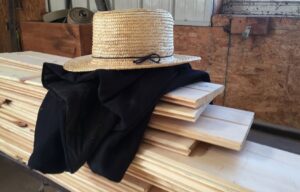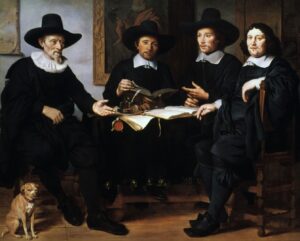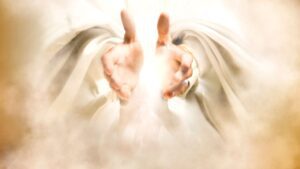Pam Kramer: We know that a question is a statement requiring an answer. Some are very easy like “What is your name?” Generally, that’s easy to answer. As we get older the questions get harder. “Why is the sky blue? What makes it rain? Why are tomatoes really fruit?” Little children often ask “why” to everything, and sometimes adults don’t have good answers.
As a student, I didn’t ask many questions. No, I wasn’t shy, or not curious. I took everything at face value, because I didn’t know what I didn’t know. As I have matured, I have become more willing to ask questions, sometimes very hard ones. I have discovered that not all answers are simply black or white. I am more comfortable with ambiguity and diverse opinions.
In our Christian faith, we find asking difficult questions disturbing, because they may imply a lack of belief, or disrespect of God and Jesus. Remember, Martin Luther and Katarina challenged the prevailing beliefs that led to the Reformation. So, this summer, Trinity’s Summer Series is called ‘Freed To Ask Difficult Questions.’ It officially began on June 26 and continues through August. I’ll let Pastor Justin explain the details.
Pastor Justin: To ask difficult questions as people of faith is to grow. The resurrection assures us that absolutely NOTHING can separate us from the love of God that is in Christ Jesus (Roman 8: 38-39). That includes our difficult questions. If Jacob can wrestle with God all night long while making demands on the Divine and then is blessed with a new name, surely, we can trust that our difficult questions can be blessed as well.
Here are some of our goals for the summer.
Since most theological frameworks, liturgical traditions, styles, cultural reference points are from white male frameworks, Trinity will utilize BIPOC (Black, Indigenous, and people of color) liturgical/reference points as well as Womanist/Liberation/Queer language and interpretation in preaching and proclamation (all voices that have been traditionally silenced when asking difficult questions).
We will develop a liturgical Rite of Holy Questioning and understand that asking difficult questions is a way of Reflecting the Radical Love of Christ. Inter-Faith Leaders will join us to share their beliefs of God so that we may grow in understanding and open doors to questions. Questions have more power to connect communities than answers.
We will give space in our worship life to ask difficult questions. Questions as Blessing, Prayer, Lament, Proclamation, and Liturgy. We will try to build specific services based off the questions being raised.
We hope you will join us this summer as we learn from difficult questions.


